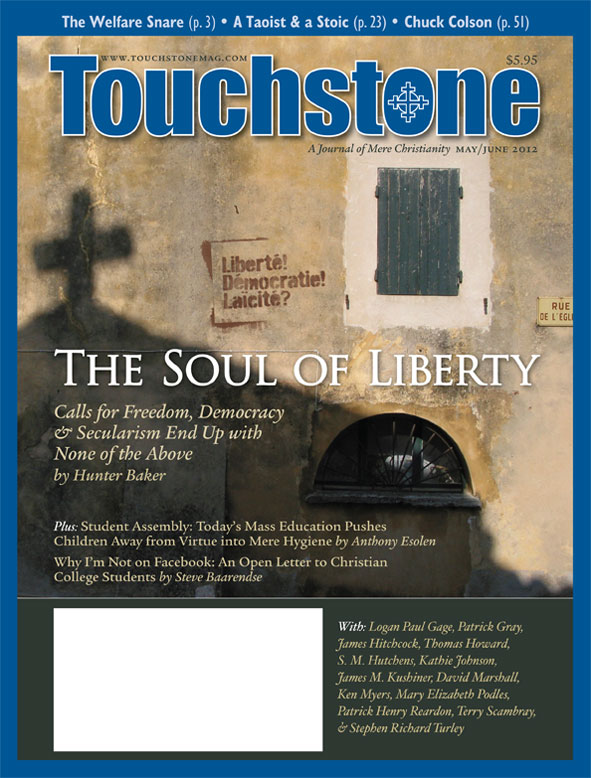Introduction
In 2009, Iranian student revolutionaries demanded a secular government because they wanted to escape the tyranny of an Islamic state. But thirty years before that, in 1979, their revolutionary predecessors demanded an Islamic state because they wanted to escape the tyranny of a secular government.
What, if anything, can restrain a state from turning tyrannical? Secular revolutions (e.g. the French Revolution, the Bolshevik Revolution, the Cultural Revolution, etc.) produced immeasurably more blood and tyranny than the 300 years of the Spanish Inquisition. And the Catholicism of the French did nothing to restrain the horrors of the secular Reign of Terror.
In Muslim nations, the church is the state, whereas in so-called secular states, the state is the church. And so how, Hunter Baker asked in his 2012 Touchstone feature The Soul of Liberty, did early America manage to thread the needle between the two?
Baker argues that the Calvinism of America’s founders so emphasized man’s fallen nature that it fostered a tremendous suspicion of power held in human hands (it makes little difference whether those hands claim a secular or religious nature).
“The United States Constitution,” Baker writes, “more than any other foundational political document, is an acknowledgment of the problem of Original Sin.” One can imagine the protest of modern libertarians, who might argue that “even if a debt is owed to the church and Calvinists in particular today’s America doesn’t need the church to sustain a healthy suspicion of government.”
Or does it? Baker quotes Quaker philosopher Elton Trueblood who wrote that “A flower grows and becomes beautiful because it is rooted in the soil where it can access the things it needs to live. . . . If you cut the flower and put it in a vase, it will remain beautiful for a time, but will soon decay and die.”
And so goes The Soul of Liberty, from the May/June 2012 issue.
—Douglas Johnson, Executive Editor
(read more Editor's Picks)
The Soul of Liberty by Hunter Baker
Feature
The Soul of Liberty
Calls for Freedom, Democracy & Secularism End Up with None of the Above
by Hunter Baker
You can find a lot of interesting things on Twitter packaged in pithy statements of no more than 140 characters each. Some of you may recall that in the aftermath of the 2009 election in Iran, a number of protesters claimed that the government had tampered with the results to stay in power. Twitter was a key channel they used both to express their outrage and to receive support from sympathetic Westerners, many of whom shaded their profile pictures green as a sign of solidarity. I happened upon a number of short statements from students in Iran who asked for “Freedom, Democracy, and Secularism!”
Having studied the history of the West and paid particular attention to the question of religion and politics, this combination of concepts struck me as odd. But it obviously resonates with many Iranian students, who repeatedly use the Internet to call for this combination of political ideals. I find it again and again. They seem to believe it is the formula.
But do these three concepts belong together?
A New Revolution?
What the students in Iran are looking for is a new revolution. They don’t like the results of the earlier revolution of the 1970s, which produced the current theocratic regime by overthrowing a secular, nationalist dictator (the Shah of Iran) and replacing his rule with rule by Muslim clerics.
Of course, the Shah, though a “secular” ruler, did not have a great appreciation for democracy and freedom. This fact alone should give the students pause in their automatic association of secularism with freedom and democracy. There really is nothing inherent in the nature of secularism that would correspond to freedom or democracy. Secularism simply means that religious values and ideas are considered extraneous to public life. It might produce freedom from religion, but not necessarily political freedom.
The clerics did not like the secular Shah because he diminished their influence and presided over a more relaxed moral and cultural climate. He was more interested in reinforcing his own power than in protecting any rights or freedoms of the people. He was also basically friendly to the West. He governed based on his interest, which is a thoroughly secular thing to do.
The theocratic regime proved no better than the Shah’s. Neither one has been good for the nation’s people or considerate of their rights. The current regime is irrationally bent on the destruction of Israel, has pushed hard to develop offensive nuclear capabilities, and is oppressive in many ways. Perhaps a new revolution, another try, might produce a happier result.
The question is, “What kind of revolution?” What sort of models should be considered, particularly if we are thinking in terms of freedom, democracy, and secularism?
Continue Reading
Hunter Baker , J.D., Ph.D., is the dean of arts and sciences at Union University, a fellow of the Ethics and Religious Liberty Commission, and an affiliate scholar of the Acton Institute.
Order
Print/Online Subscription

Get six issues (one year) of Touchstone PLUS
full online access including pdf downloads for only $39.95. That's only $3.34 per month!
Order
Online Only
Subscription

Get a one-year full-access subscription to the Touchstone
online archives for only $19.95. That's only $1.66 per month!
Order Touchstone subscriptions in bulk and save $10 per sub! Each subscription includes 6 issues of Touchstone plus full online access to touchstonemag.com—including archives, videos, and pdf downloads of recent issues for only $29.95 each! Great for churches or study groups.
Transactions will be processed on a secure server.
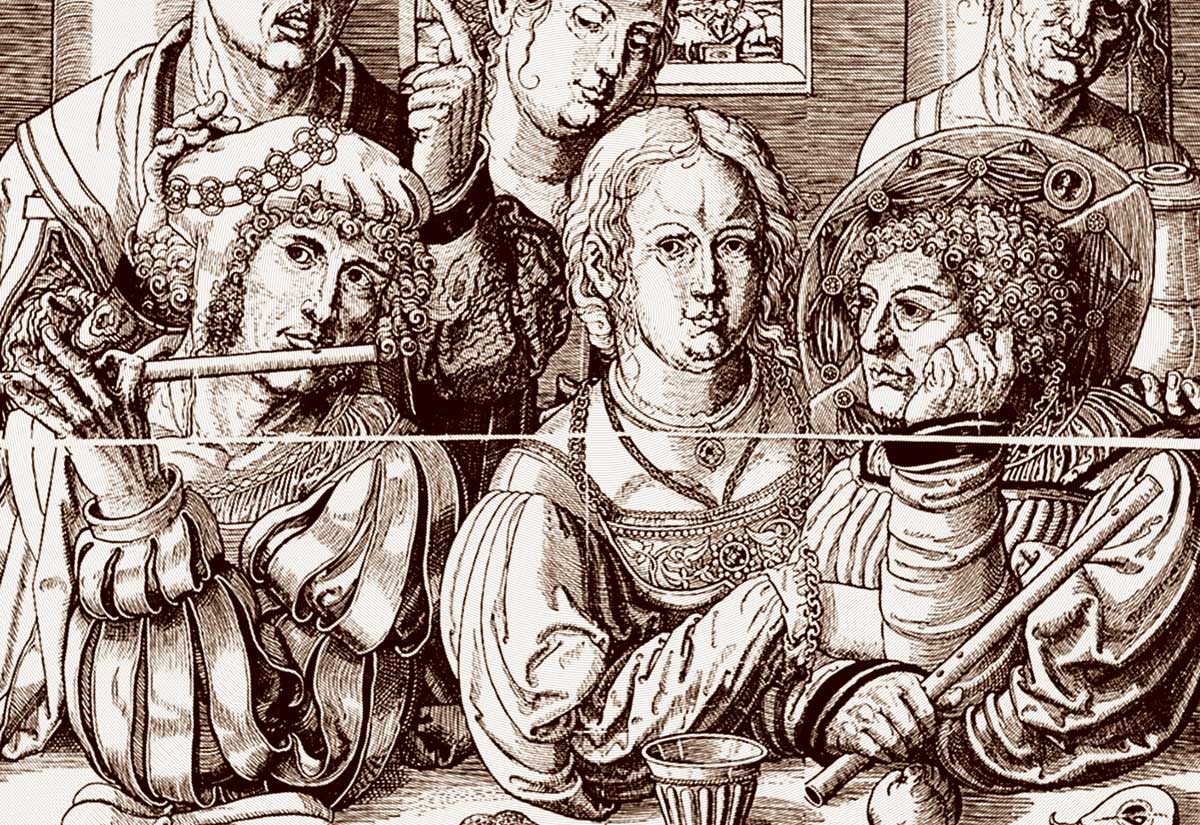
24.6—Nov/Dec 2011
Statutes of Liberty
on the Tyranny of Modern Freedom versus the Freedom of Jesus by Gillis J. Harp
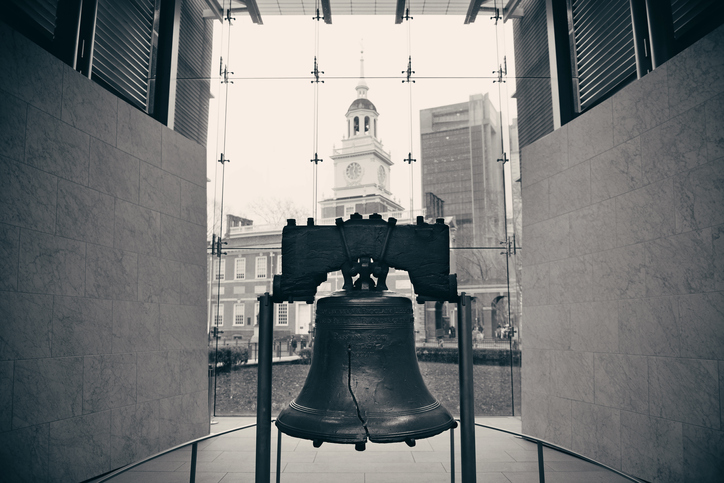
25.3—May/Jun 2012
The Soul of Liberty
Calls for Freedom, Democracy & Secularism End Up with None of the Above by Hunter Baker
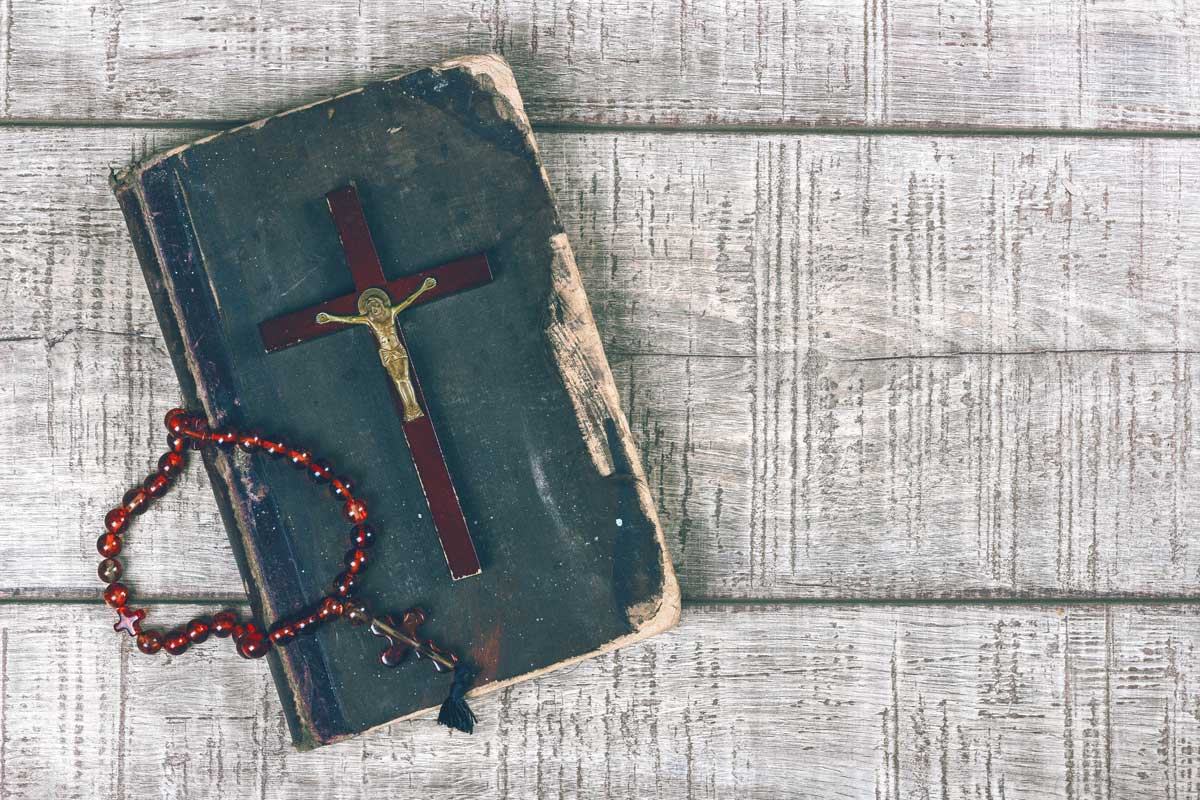
24.6—Nov/Dec 2011
Liberty, Conscience & Autonomy
How the Culture War of the Roaring Twenties Set the Stage for Today’s Catholic & Evangelical Alliance by Barry Hankins
more from the online archives
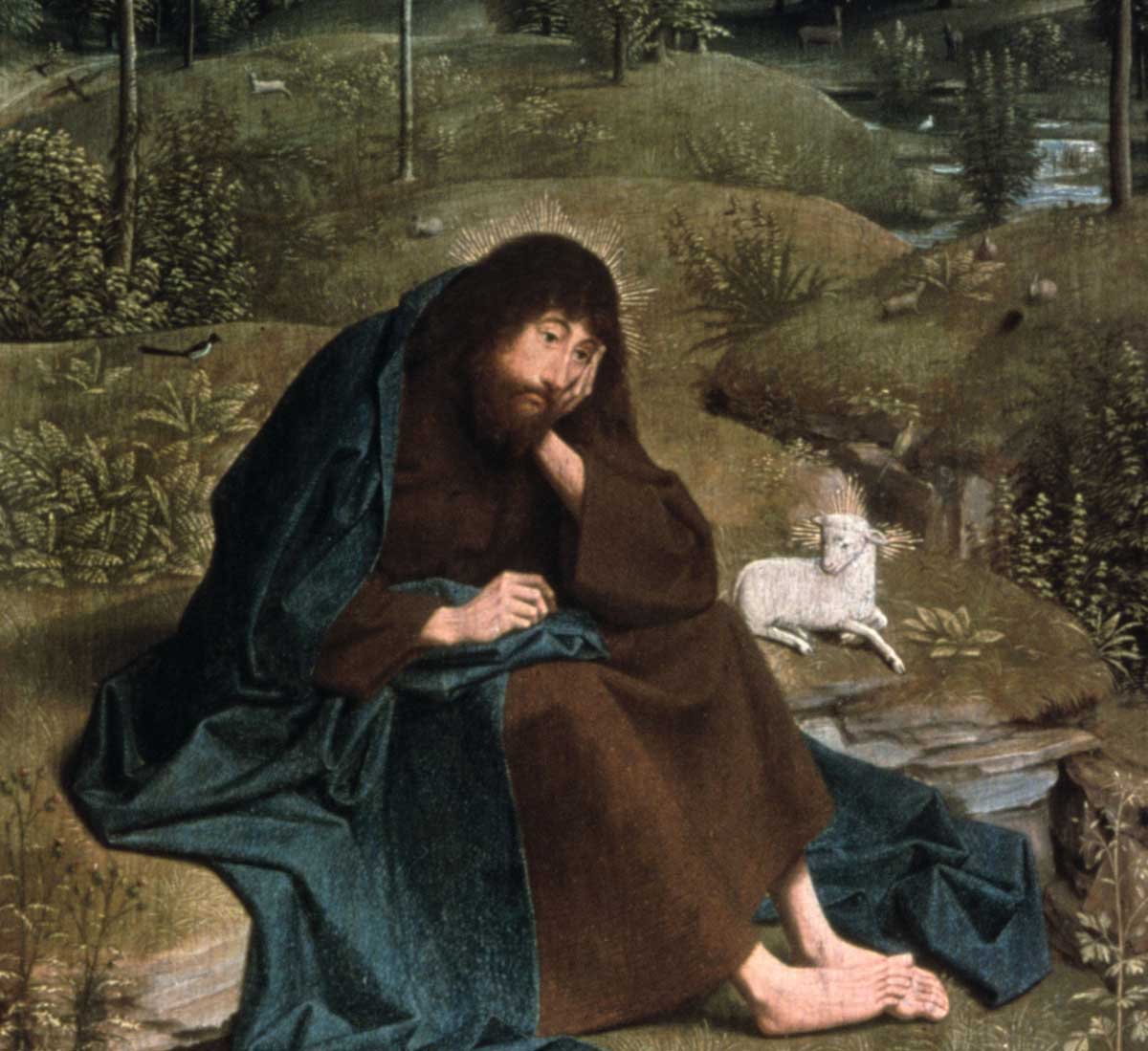
33.3—May/June 2020
Deliberation, Inc.
Human & Divine Societies Require Careful Thought & Discourse by Anthony Esolen

30.3—May/June 2017
Known Trespassing
on the Misuse of Property Rights to Justify Slavery & Abortion by Robert Hart
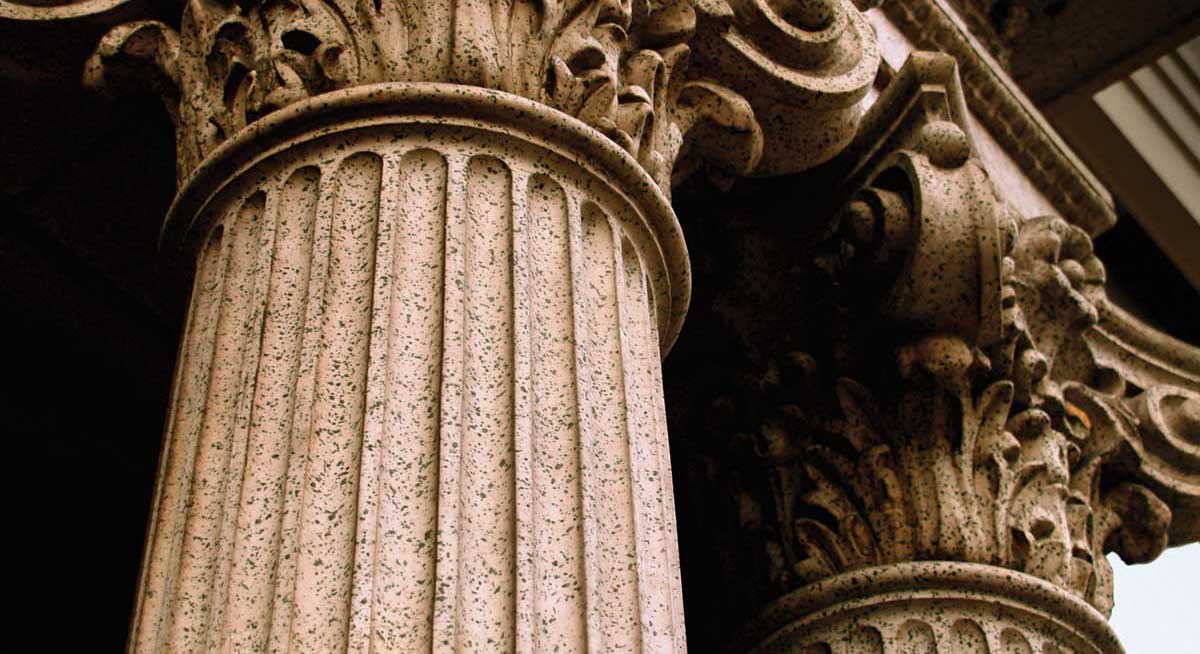
23.1—January/February 2010
The Audacity of the State
It’s Bent on Bringing Down the House on the Family & the Church by Douglas Farrow
calling all readers
Please Donate
"There are magazines worth reading but few worth saving . . . Touchstone is just such a magazine."
—Alice von Hildebrand
"Here we do not concede one square millimeter of territory to falsehood, folly, contemporary sentimentality, or fashion. We speak the truth, and let God be our judge. . . . Touchstone is the one committedly Christian conservative journal."
—Anthony Esolen, Touchstone senior editor
Support Touchstone
00






